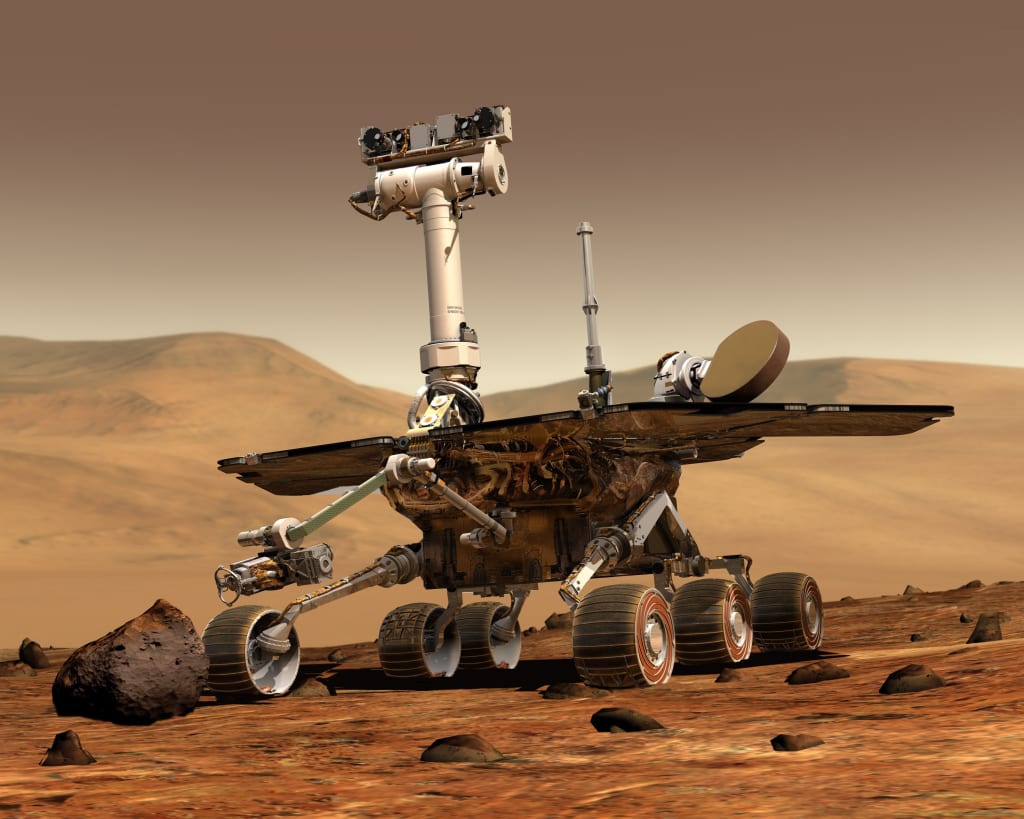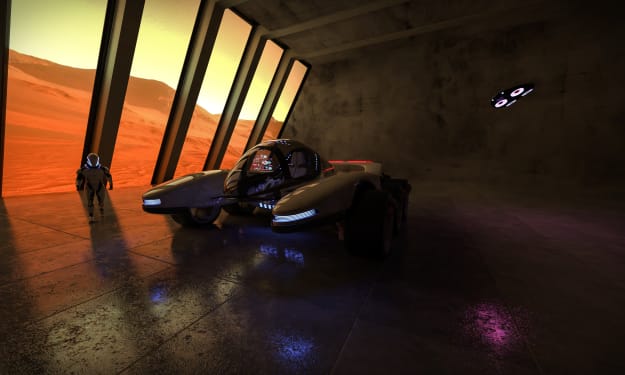Mars: The Final Frontier? Exploring the Future of Human Colonization
The Red Planet, our cosmic neighbour

In the vast cosmic sea of possibilities, one celestial body has captured our collective imagination like no other – Mars. The Red Planet, our cosmic neighbour, has beckoned to us for centuries. It's the closest we can get to a living, breathing planet beyond our own Earth, and it offers tantalizing possibilities for human colonization.
A Cosmic Odyssey
Mars has long held a special place in the annals of space exploration. From the early fascination of astronomers like Percival Lowell, who believed he spotted Martian canals, to the present-day missions and rovers that dot the Martian landscape, our interest in Mars has never waned. But the question that beckons us is: can we make Mars our second home?
Elon Musk's Martian Dreams
One name that comes to mind when thinking about the future of Mars colonization is Elon Musk. The SpaceX CEO has been vocal about his vision for a human settlement on Mars. In a 2016 presentation, Musk outlined his audacious plans for a self-sustaining colony on the Red Planet. His timeline? Ambitiously set for the next decade.
Musk's SpaceX is hard at work developing the Starship spacecraft, designed to be a fully reusable vehicle capable of carrying a hundred or more passengers to Mars. The project represents a significant stride towards the practicality of human colonization.
NASA's Martian Ambitions
SpaceX isn't the only player in the Martian game. NASA, the United States' space agency, is working diligently on its Artemis program, which aims to return humans to the moon and use it as a stepping stone for Mars. The Artemis project is setting the stage for sustainable lunar exploration, which can provide invaluable experience and resources for a future Martian mission.
The Martian Environment
Mars may be our cosmic neighbour, but it's no cakewalk. The planet's harsh environment poses numerous challenges. Its thin atmosphere provides little protection from solar and cosmic radiation, and its surface temperatures can plummet to -195 degrees Fahrenheit. Moreover, Mars' atmosphere consists primarily of carbon dioxide, making it inhospitable for humans.
Terraforming Dreams
To make Mars truly habitable, we would need to consider terraforming – altering its environment to resemble Earth's. This is a lofty and controversial idea, but it's a concept that sparks the imagination. Scientists have proposed various methods for terraforming, including releasing greenhouse gases to thicken the atmosphere and raise temperatures.
Mars as a Backup Plan
The idea of Mars as a "backup planet" in case Earth becomes uninhabitable is a recurring theme. While it's a rather grim concept, it highlights our growing awareness of the fragility of our planet. The prospect of a self-sustaining Martian colony could serve as an insurance policy for humanity's survival.
Challenges and Considerations
Mars colonization isn't without its challenges and considerations. The isolation and psychological effects of living on Mars, the need for sustainable life support systems, and the sheer cost of such an endeavour are among the many hurdles that need to be overcome. Furthermore, there's the ethical question of how we might interact with any potential indigenous life forms on Mars.
A Paradigm Shift in Space Travel
The quest to colonize Mars marks a paradigm shift in space travel. It's a journey that transcends the bounds of exploration and ventures into the realm of settling a new world. In doing so, we might redefine what it means to be human and to explore the cosmos.
Awaiting the Cosmic Pioneers
The future of Mars colonization raises the question: Who will be the cosmic pioneers that embark on this extraordinary journey? Will it be astronauts, scientists, and engineers? Or perhaps, the concept of "space tourists" will become a reality as commercial space travel becomes more accessible.
Conclusion: Mars - A New Beginning
Mars, with its barren deserts, deep canyons, and towering volcanoes, represents a blank canvas on which we can project our hopes, dreams, and ambitions. The prospect of human colonization is not just an exciting feat of engineering but a testament to our unwavering human spirit, our innate curiosity, and our determination to push the boundaries of what's possible.
As we contemplate the future of Mars colonization, we're also forced to reflect on our place in the universe. In the grand cosmic story, we are but a brief chapter, and Mars may well be the beginning of the next exciting adventure. It's a story filled with challenges, dreams, and endless possibilities – a story that may very well captivate the world as we inch closer to answering the question: Is Mars the final frontier?





Comments
There are no comments for this story
Be the first to respond and start the conversation.